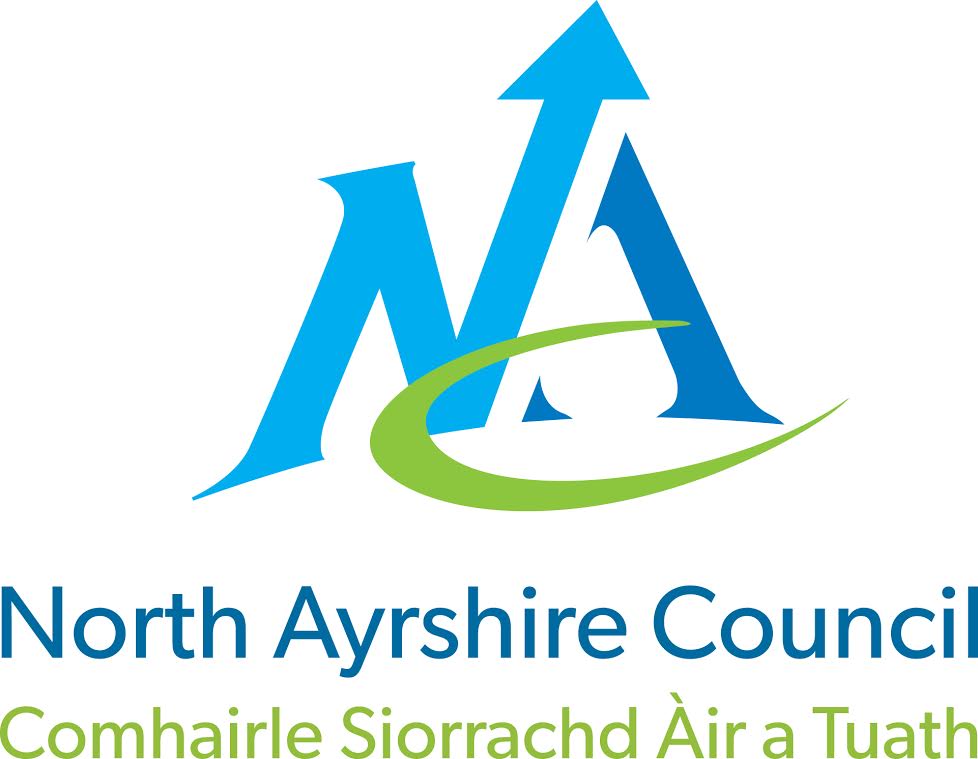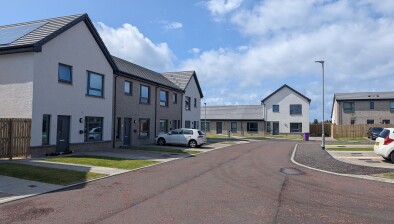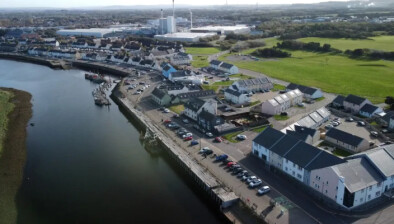North Ayrshire approves extra funding for B714 project

North Ayrshire Council’s Cabinet has approved £5 million in funding to support the delivery of the B714 road upgrade.
Due to a substantial global cost crisis, which has seen rising inflation and increased costs for construction materials impacting on projects worldwide, additional financing is now needed.
The upgrade would increase the potential for economic development and tourism by significantly improving connectivity to Glasgow, the Central Belt and wider motorway network.
It would also provide enhanced links to the Arran and Cumbrae ferry services, therefore enhancing the repopulation of North Ayrshire’s islands and rural areas.
And it would also divert a significant volume of traffic accessing the A78 away from Kilwinning as traffic will connect directly to the A78 via the new upgrade.
In October 2021, North Ayrshire Council was successful in its application for £23.7m of funding for the project from the UK Government’s Levelling Up Fund (LUF).
This award equated to 90% of the project’s costs at that time, and was match-funded with £3m from the council’s Investment Fund to provide the 10% balance required.
The delivery of the original scheme, subject to securing the necessary consents and permissions, was agreed by Cabinet in January 2022.
The council and its partners have carried out extensive consultation with landowners and stakeholders, and also hosted a public consultation exercise and exhibitions on the plans in November last year.
A report to Cabinet on Tuesday, August 29, outlined how construction costs have significantly increased since the LUF application was made, due to the Coronavirus pandemic and recent downturn in the economic climate.
Inflation driving up costs and continued hikes in energy prices have been contributing factors in tough conditions for construction projects globally, with materials and salaries becoming more expensive.
The Project Team has worked tirelessly to deliver the project within the £26.7m budget, however any significant changes that will reduce the benefits of the scheme could put the LUF offer at risk.
It is now proposed to deliver a revised scheme in two phases.
- Phase One would start from Girthill to the Hillend Roundabout, with online improvements between Meiklelaught and Muirlaught, and see construction of a roundabout to connect the upgraded road to the Hillend Roundabout.
- Phase Two, between the Sharphill Roundabout and Muirlaught, would be carried out at a later date, subject to funding.
This means the electric vehicle charging facilities and elements of the environmental enhancements would be delivered through alternative funding sources.
Also, the active travel infrastructure and associated earthworks along the route would be removed and delivered through alternative funding sources at a future date.
Localised active travel improvements, within Dalry and Saltcoats, are being delivered separately through funding secured from Strathclyde Partnership for Transport’s Capital programme.
The current cost estimate for the revised project – which will avoid any significant reduction in its benefits – is now £31.7m.
The UK Government has confirmed that no additional money from the LUF is available, and the Scottish Government cannot offer support through Transport Scotland’s budget.
The phased delivery of the scheme would still meet the LUF criteria for the £23.7m award, by:
- Improving the resilience of, and enhancing, the most direct link between Glasgow and the Three Towns
- Improving safety and contributing to accident reduction on the B714 through increased width and improved road alignment over the most sub-standard sections from Girthill to Hillend Roundabout and Meiklaught to Muirlaught and
- Contributing to alleviating congestion and air quality related issues in Kilwinning.
Councillor Tony Gurney, cabinet member for Green Environment and Economy, said: “These are highly challenging times, when it comes to finances, for all local authorities planning construction projects. Increasingly, we are finding ourselves having to balance difficult choices with competing priorities.
“We remain positive that we can progress this ambitious project, which will bring many benefits to communities, businesses and visitors.”
















